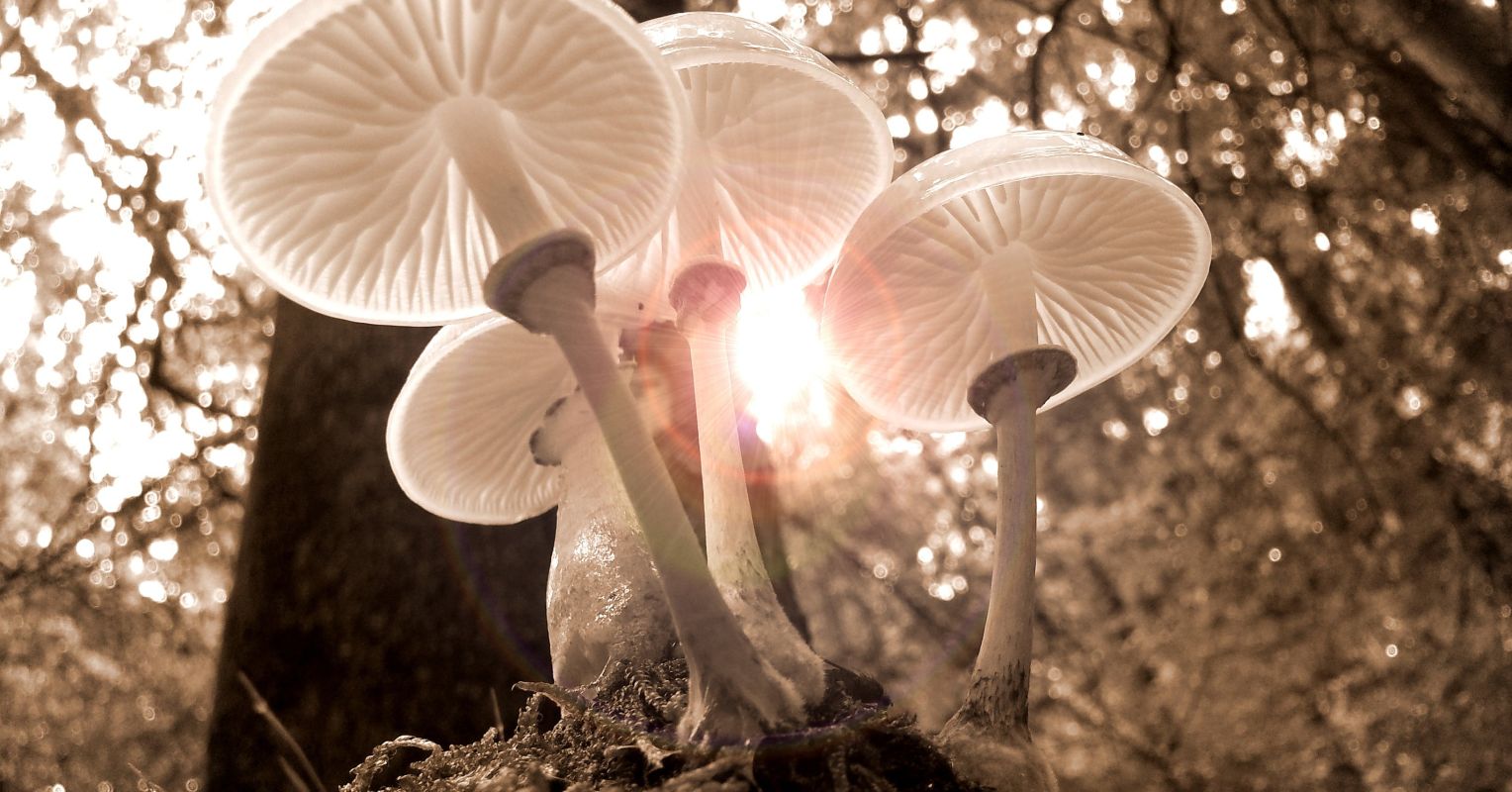
Last year I wrote a two-part series about a powerful psychedelic plant called ayahuasca. Today I add to the psychedelic zeitgeist by discussing ayahuasca’s chemical cousin, “magic” mushrooms.
And magical they are. I believe these wise little fungi are medicinal marvels that can change the world of mental health, and each of us, for the better.
I recognize these are bold statements to make about something many associate with hippies at music festivals or lump into the category of illegal, dangerous drugs. But I, and many in the field of psychiatry and the human potential movement, feel the real crime is the lack of access and people’s misconceptions.
Regarding those three words: illegal, dangerous, and drugs—yes, magic mushrooms are illegal (although increasingly decriminalized in cities and approved for clinical research trials). And sure, they could be dangerous if carelessly applied, but not nearly as dangerous as some legal substances like alcohol or certain pharmaceuticals. Lastly no, when used with intention they are a form of medicine, not a drug.
How Do They Work?
The chemical compounds in mushrooms, psilocybin and psilocin, act on serotonin receptors in the brain. Serotonin is associated with contentment, satisfaction, peace, and kind connection (to our essence, to each other, to nature). But the mechanism of action goes beyond pharmaceuticals that target serotonin when you consider how mushrooms get to the root of the problem. They also cultivate neuroplasticity (creating new neural pathways) and overall brain connection between areas that don’t always connect together, but as I’ll explain, are quite beneficial when they do.
Research is showing some positive benefits for people who “microdose” mushrooms, which means taking a small amount (under .25 grams) slowly and steadily over time—with breaks in between to prevent tolerance—to cultivate lasting improvements. The reported benefits of microdosing vary based on what needs to be unearthed in the person. Some examples include: relating in a healthier way to emotions, facing fears and overcoming them, connecting to the environment and nature, living from integrity, insights for changing unhealthy patterns, increased compassion, less anxiety and depression, more mental clarity, acceptance of the present moment, trusting intuition, cultivating healthy habits, and ultimately, minimizing the dysfunctional ego (the part of our mind that holds grudges, compares, competes, needs to be right, criticizes ourselves and others, and sees the world in terms of me instead of we). If that last one isn’t a problem of our time, I don’t know what is.
People microdose in the form of tea, a capsule, chocolate, or gummies. People often ask me if they’ll appear “high” but I explain that microdosing is subtle and usually undetectable by others. But over time you and your loved ones may notice you are kinder, less reactive, and more at peace.
Some people choose to take higher amounts, such as a macro dose (considered 5 grams or more) for a deeper dive into the subconscious, when the time is right. If you take a moderate dose or higher, it’s standard protocol to have a sober guide with you, such as a trained therapist or shaman. No matter how much you take, you need to make sure you: (1) Are in the right “set and setting” (mindset and environment). If you’re in an unstable place mentally or physically, wait until things become more stabilized; (2) Avoid mushrooms if you have a psychotic disorder such as schizophrenia or bipolar disorder, and (3) Set specific intentions to guide you and provide focus as you enter the vast array of your subconscious.
To clarify, mushrooms aren’t creating something new in you, rather, they highlight in a gentle way what you may need to face. From there, your task is to integrate the teachings into your daily life through activities such as journaling, talking with a therapist who understands psychedelics, time in nature, and embodiment. This is when you become the medicine, as you increasingly live from your inner-knowing.
Some people aren’t morally opposed to the idea of psychedelics for therapeutic benefit, but they personally avoid them for fear of losing control. However, all the things they try to keep below the surface may actually be controlling them.
And unlike alcohol, cannabis, and many pharmaceuticals which dull your receptors, mushrooms can raise your consciousness and increases your clarity. Quite the opposite from regular drinking, which can perpetuate two prevalent addictions: dependency on alcohol and numbing feelings.
The irony is that the word “psychedelic” means to modify the psyche, something most people do every day, but in ways that lower their consciousness rather than raise it.
Mushrooms, however, are not addictive and there are no physical withdrawal symptoms, although some report brief fatigue after partaking in high doses. Perhaps this is because they are an adaptogenic plant medicine innately imbued with moderation. If anything, research is supporting their use in helping people overcome other addictions.
Although mushrooms may have been glamorized in the 1970s as a party drug, the emphasis and expectation now is to treat them with the reverence and respect they deserve. As Robin Wall Kimmerer states in the book Braiding Sweetgrass, “In some Native languages the term for plants translates to ‘those who take care of us.’” When we ingest mushrooms with care and respect, they may respectfully care for us back.
This increase in kind connection to others, and a kinder relationship to ourselves, is where nature truly meets nurture. As we continue to study the benefits of psychedelic plant medicine, we see how beautifully interwoven science and spirit can become. We need this kind of heartfelt medicine during our era of disconnection and violence. As we sit in collective trauma watching people harm each other and harm the planet, mushrooms can help us remember our true nature: that we are nature. They remind us that we are more alike than different, all humans craving a path back to wholeness and interconnection.
